From 12th to 16th August 2024, African Jesuit AIDS Network (AJAN) undertook a 5-day training of trainers on AJAN HIV and AIDS Prevention Program for the Youths (AHAPPY). The training that took place at the Pastoral Centre in Isiolo was attended by 32 youth leaders from the Catholic Diocese of Isiolo representing 10 out of the 15 Parishes of the Catholic Dioceses of Isiolo. The training comes after a successful training for the youth leaders from the Catholic Diocese of Marsabit that was conducted in June 2024.
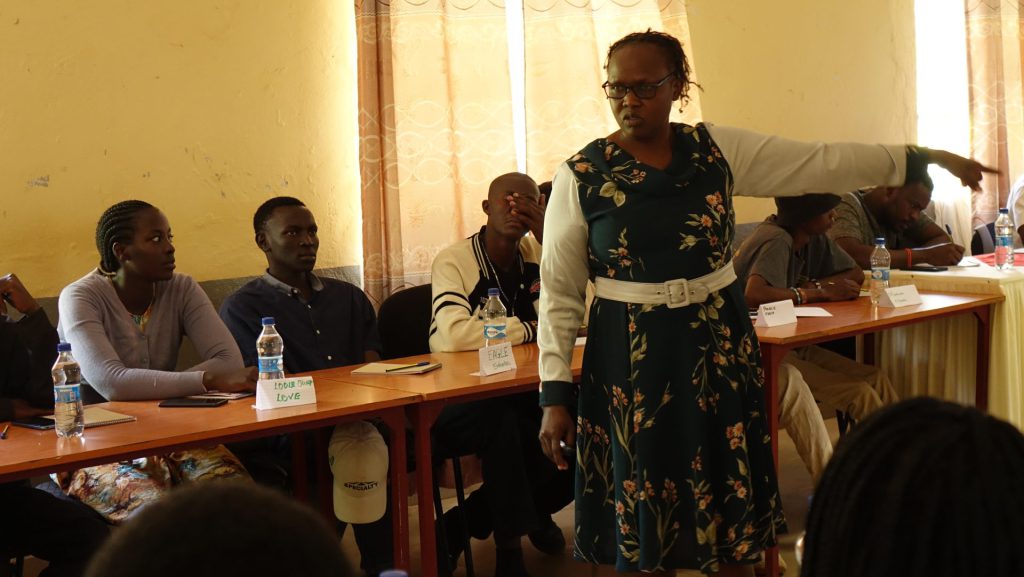
The training organized by AJAN in collaboration with the youth chaplaincy office, Catholic Diocese of Isiolo saw the youths gain knowledge, skills on self-discovery, social entrepreneurship, youth empowerment, how to accompany fellow youths and young people in the diocese. The training was undertaken by 5 facilitators; Ms. Pascalia Sergon, Ms. Samantha Waki, Ms. Lucy Monari, Mr. Dennis Owuoche and Fernando Nimbu SJ..
Day one of the training would not have started any better with the youths outlining their expectations of the training with most of them stating that they were expecting to gain new knowledge and skills, establishing new networks, collaborate with their fellow youths and at the same time having fun as they learn. With so much eagerness and open to acquiring new Knowledge Ms. Pascalia would go on and expound what the AHAPPY program is all about. During the five days of the training the participants were taken through the five modules of the AHAPPY manual, they include: Module A; Awakening to Myself, Module B; This World I Live in, Module C; Facing A World with HIV and AIDS, Module D; Knowing Myself to Grow Myself, and Module E; The Foundation on Which I Build My Life.
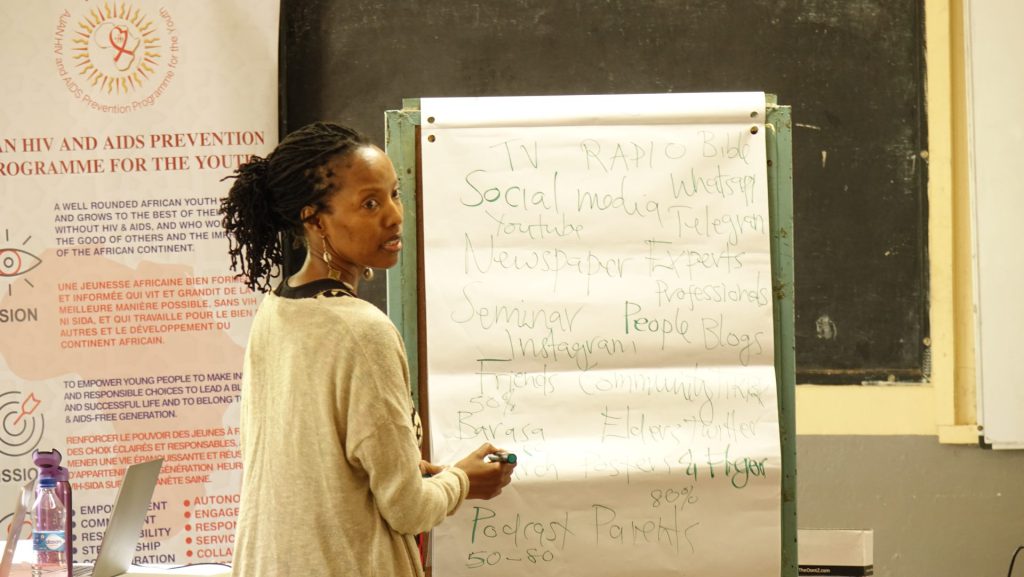
After the introduction, the facilitators Ms. Lucy, Ms. Samantha and Fernando took the participants through the first module: Awakening to myself; where the participants were made to understand who they are, more on the creation of the human being, their roles and responsibilities on earth and how they are supposed to live by themselves and others in the society. Using Johari Window, a framework created by psychologists Joseph Luft (1916–2014) and Harrington Ingham (1916–1995) as a guidance tool, participants were taken through the four windows to aid them in their self-awareness journey and just to summarize; The Johari Window is split into four quadrants: the Open Area (things you know about yourself), the Blind Area (things you don’t know about yourself, but others do), the Hidden Area (things you know about yourself, but keep hidden), and the Unknown Area (things that are unknown to you and to others). All the knowledge gained from the framework would then assist the participants in making an informed decision of the World they are living in, discussion would then elicit about the good and the evils that exists in the world and why they should be responsible in the choices they make in life.
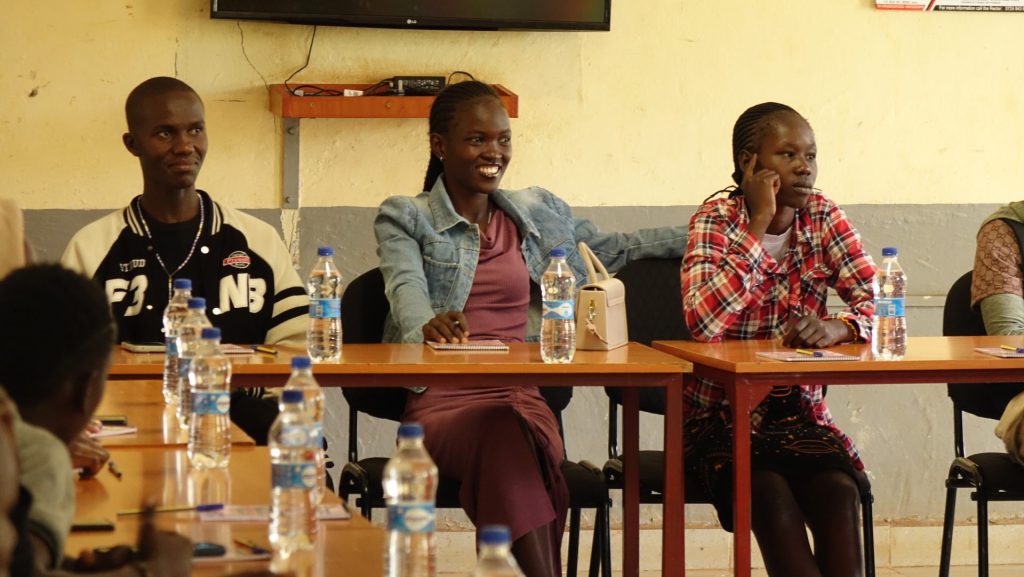
On the second day, we were honored by the presence of Rev. Peter Munguti Makau, the Coadjutor Bishop of the Catholic Diocese of Isiolo, who took the time to express his appreciation for the AHAPPY facilitators and addressed the youth leaders. He emphasized, “The youths are the leaders of today, and what we want to achieve tomorrow let us do today. The fact that you are youths today is one of the beautiful experiences and moments that the Lord has given to you. You are all leaders in your own capacity, coming from different parishes and diverse backgrounds and occupations. You are here to receive this information, and just like a sponge, you absorb it so that you can also share it. In this process, you must first believe what you read, then teach what you believe, and finally practice what you teach. The best way to do this is by being a model, and as youth, you can be role models for the younger generation.”
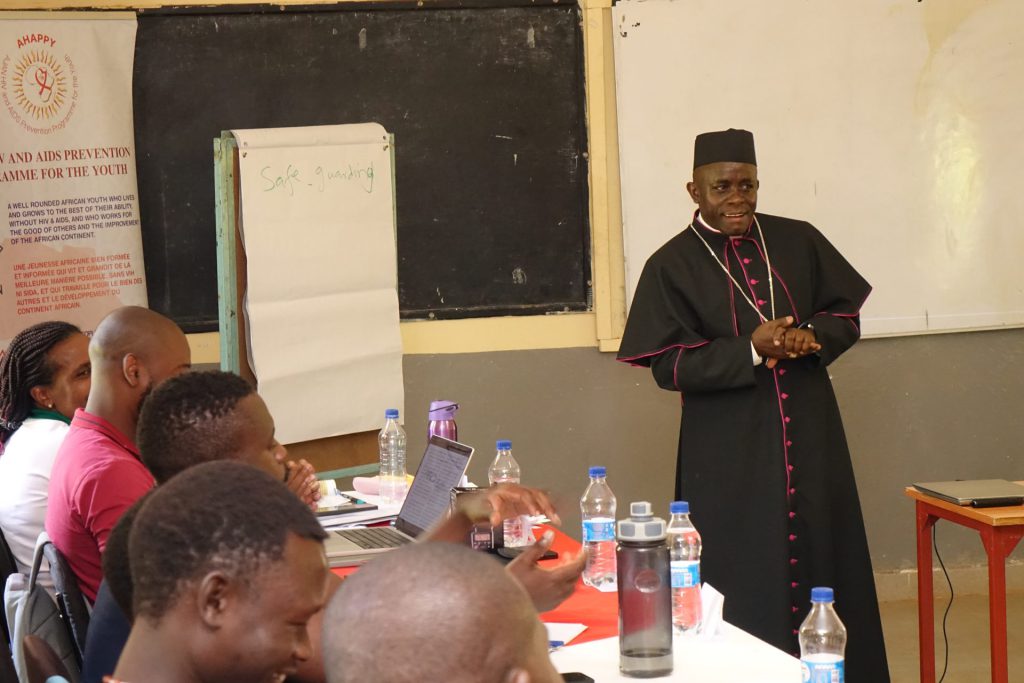
The Bishop continued by stating that, “This training is a golden opportunity given to us to help bring our society back on track. Whatever knowledge you gain, use it to transform our society and set a good example for others to follow. So my encouragement to the youth leaders here is that they endeavor to be the red sea rather than the dead sea. The red sea has got life in it, with so much plants, fish and outlets of water that keeps the sea healthy and vibrant. On the other hand the dead sea has got so much saltiness that there is no life at all in the dead sea, No fish, No vegetation, No sea animals, Nothing lives in the dead sea, the lesson we draw here is that, Life is not just about getting, it’s about giving, Make sure we don’t just get what we will be given but we give out the knowledge that the facilitators will have shared with us. “
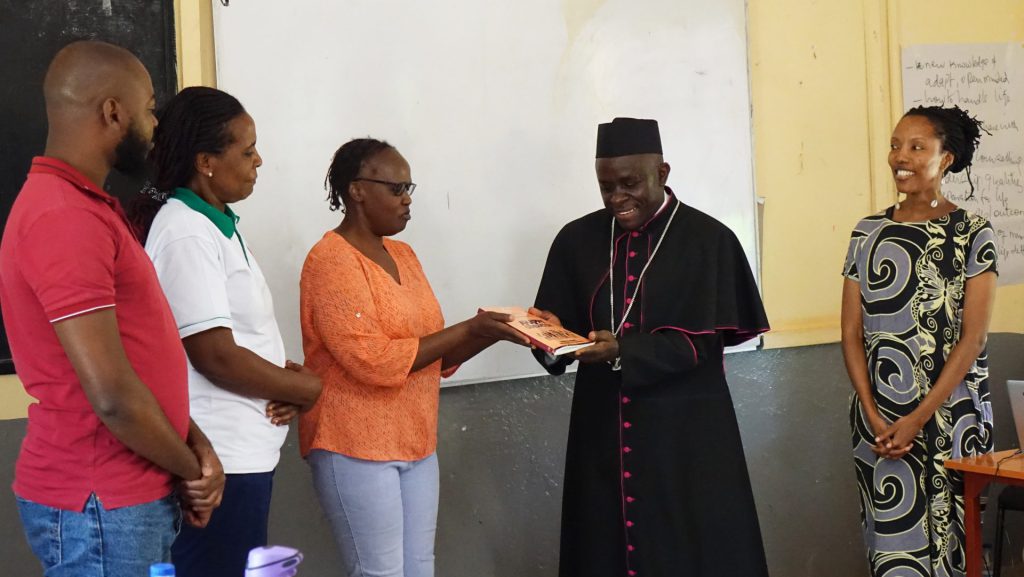
By the end of the second and third day, participants had gained a deeper understanding of the world they live in. Ms. Sergon engaged the participants by discussing the HIV and AIDS and sexually transmitted infections (STIs) modes of transmission and how the youths can prevent themselves from contracting the HIV virus and getting infected with the STIs. While participants demonstrated some prior knowledge about the Human Immunodeficiency Virus (HIV) and the modes of transmission, there was still need to engage them further in discussing how the virus is contracted and in dispelling existing myths and stereotypes within their communities. The participants also highlighted the issue of stigmatization faced by persons living with HIV. Later on participants deepened their understanding of the world around them by being taken through the topic of safeguarding where they were made aware of their roles in protecting the minors and vulnerable people from abuse. Speaking during an interview at the end of the session Ms. Lucy Monari, Safeguarding Coordinator for the Jesuit Conference of Africa and Madagascar (JCAM), said, “From the interaction I have had with the participants during the session, they were very inquisitive during the presentation on HIV and AIDS and STIs among the youths and you could tell through the discussion when they highlighted and even expounded some of the myths about HIV and AIDS. This was an indication that the youths needed to be engaged more on the facts about HIV and AIDS, what is true and not true and how they can take care of themselves.”
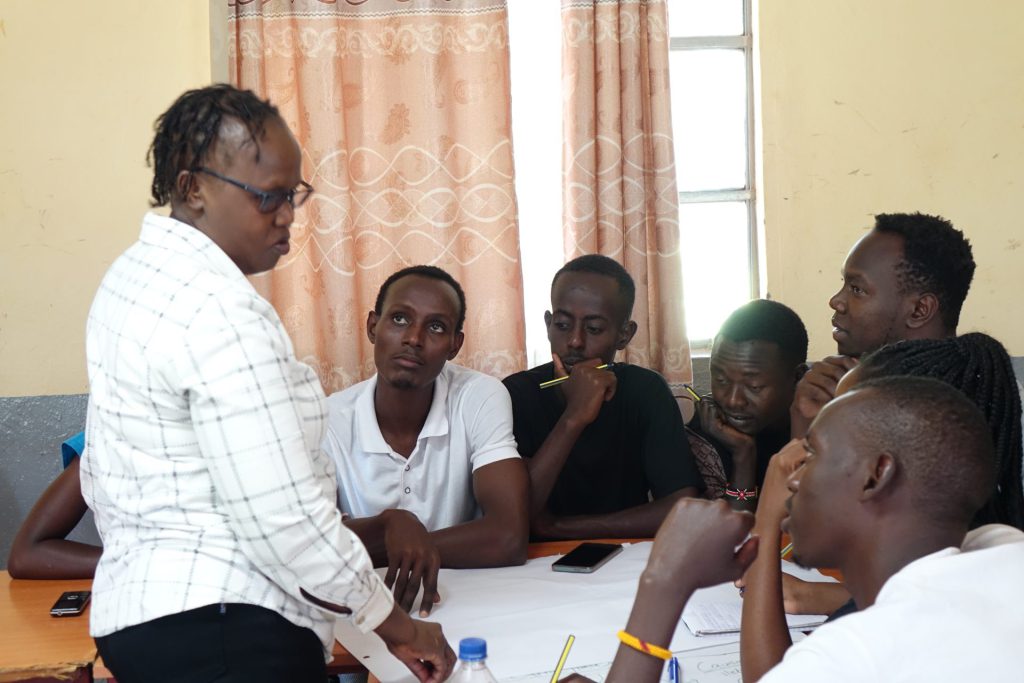
Giving their feedback about the training on the topic of HIV and AIDS, one of the participants, Austine Nyawira stated, “It is from this training that for the first time I really understood that Isiolo is a leading frontier among the counties in Kenya with a higher HIV infection rate. I felt I needed to take action because I live in Isiolo County. I can attribute the high HIV infection rate to Ignorance by the youths, another thing contributing is the fear of being stigmatized, those infected with the virus are afraid of saying they are HIV positive because of fear of what the community will say about them. I look at the future of the youths and I wonder where we will be in the next two years if us as the youths don’t take preventive action to stop the spread of the HIV virus. What I can advice my fellow youths is to abstain but more so to know more about their health status.” Contributing to the same conversation Jemimah Wahome said, “The topic on HIV and AIDS among the youths really resonated with me, it is an issue that is really being ignored by the youths because they are not ready to talk about it, they know the risk, but they are still willing to go against the risk because of the peer pressure. I really hope from this training as us leaders we will be able to have this conversation with our fellow youths. I feel ignorance is the biggest challenge among the youths in Isiolo and my plea to my fellow youths is that we can only fight ignorance if we are able to convert the knowledge gained from this training into action.”
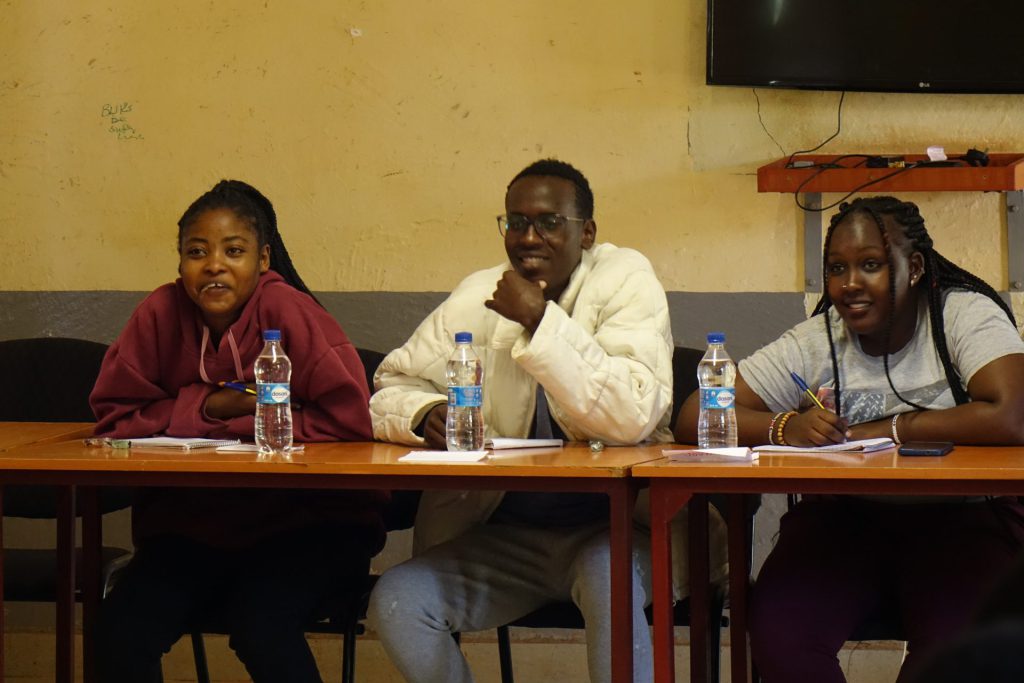
To cultivate a well-rounded and responsible younger generation, the safeguarding component for minors and vulnerable individuals was integrated into the AHAPPY program. This ensures that even as we train the young leaders across the Catholic Dioceses in Kenya to be responsible and integral members of the community we also emphasize the importance of creating a safe and supportive environment for the minors and vulnerable people in the society, those who have been abused, molested, isolated and stigmatized. By incorporating safeguarding measures, the program will be able to equip young people with the knowledge and skills necessary to respect, care for themselves and others.
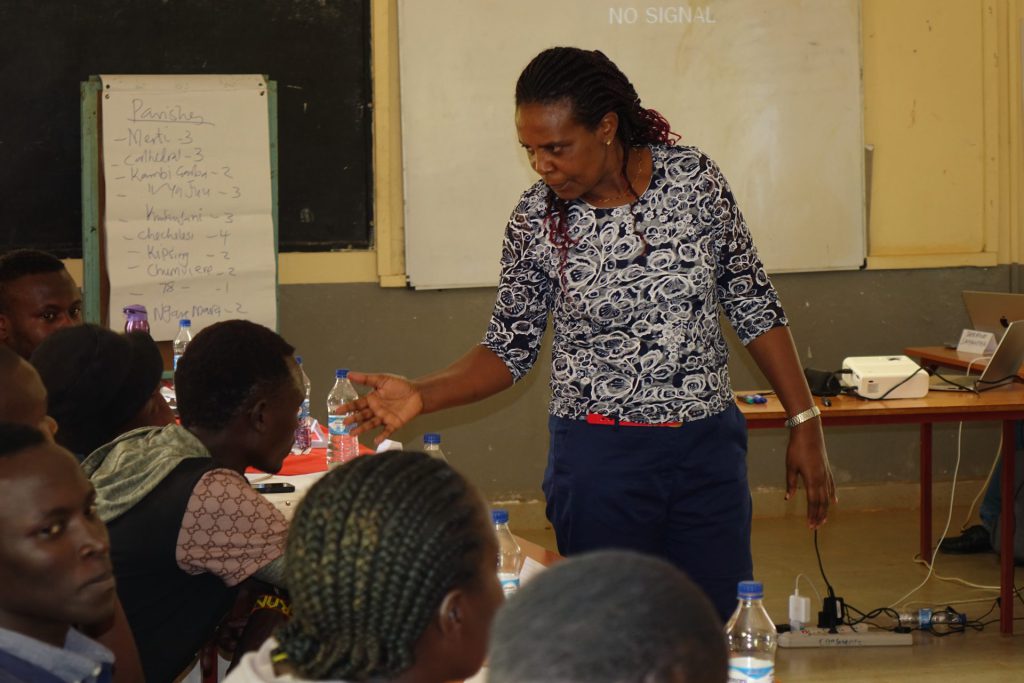
Ms. Lucy Monari, the Safeguarding Coordinator for the Jesuit Conference of Africa and Madagascar (JCAM), offers further insights into why this is crucial, explaining, “Safeguarding focuses on young people, who are often among the vulnerable individuals in the church. In the AHAPPY training methodology, the safeguarding component has been seamlessly integrated, aligning with the program’s initial focus on the human person. One of the critical social issues addressed is the risk of abuse, and the safeguarding component plays a vital role in teaching participants how to reduce this risk and promote well-being within the church community. The youth responded positively, and for many, it was an eye-opening experience. They hadn’t previously considered the importance of being concerned about their own safety within the church or the broader community. Moving forward, this kind of collaboration is essential for the holistic development of young people, ensuring that they are not only equipped to lead but also empowered to protect young people and vulnerable groups in the church and support the mission of the church.”
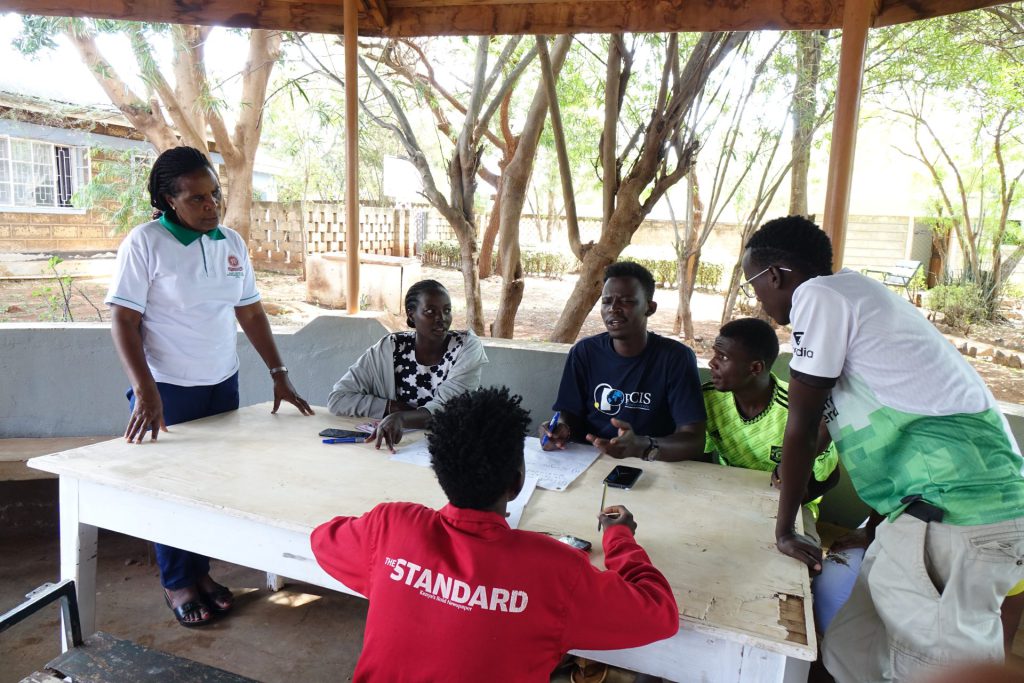
During day four and five, participants were taken through Module D: Knowing myself to grow myself. This module focused on self-awareness, personal development and social entrepreneurship, guiding participants to better understand their own identities, strengths, and areas for growth. By them understanding what is mentorship, choosing better role models to guide them in their career paths and personal life. Through group activities and discussions, participants learned how to work in unity, where they were taken through the journey of how they can cultivate emotional intelligence, them being leaders they needed to know how to communicate, manage their thoughts and behaviors, and build stronger, more empathetic connections with the people around them. Participants were challenged to be changemakers by identifying opportunities in challenges, the participants were expected to be creative and innovative, even as they initiate businesses or entrepreneurship projects, rather than focusing only on generating income they can be creative in generating solutions to the existing problems that their communities are facing.
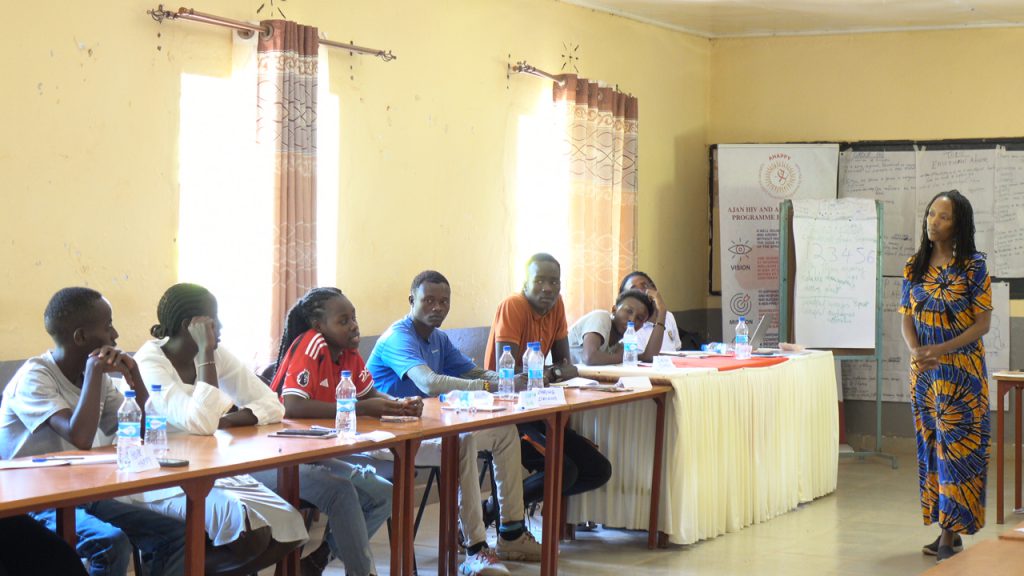
The general feedback received from the participants was positive. Here are some of the feedback given.
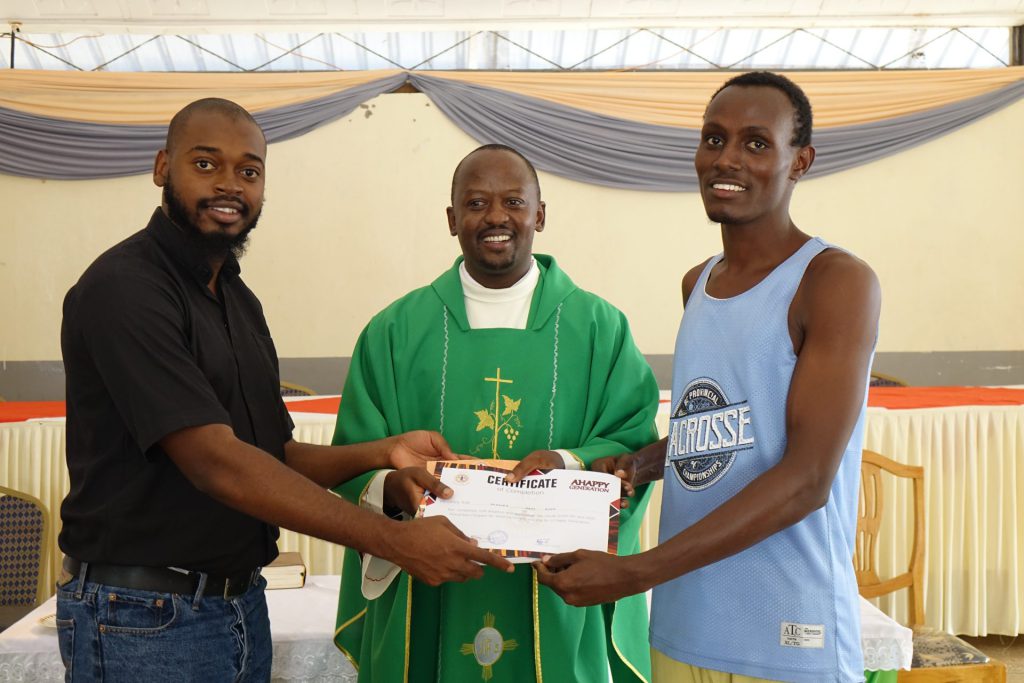
Malley Abdi Guyo (standing right in the photo) says, “I really had a nice time interacting with my fellow youths, and the facilitators were people who were really engaging and ready to listen to us. The topic on HIV and AIDS and effects of westernization really captured my interest, what arose from this two areas was the need for one to accept him or herself. Coming from the Borana tribe, we have our own way of dressing and culture up to date and because of that you can clearly notice the shift and influence of Western culture among our younger generation through the exposure to Western media that has brought different perspectives on gender and sexuality that touches on LGBTQ+ issues. All this has led to a shift in attitudes and behaviors, especially among younger generations who are now abusing drugs. From here I am going back to my Parish to tell my fellow youths what is right and what is wrong, share the experience I got from this training with them. To my fellow youths out there, life is how you live it, You don’t have to die poor because you were born poor, the youths need to see challenges as an opportunity to grow better.“
Abraham Nkito (Standing right in the photo) says, “Much of my expectations of the AHAPPY training was met, but there is something encouraging I got which will keep me going; there is that illustration of an iceberg of the African Map when put inside water, at the edge of the Africa Map on top you can only see the small problem but when you come deep inside you find that there are a lot of problems, that is a lesson for me that I should move on from seeing problems from outside but dig deep and find the root causes of the problems in life, in my community and endeavor to find solution to those root causes so that I can be the hope of my own life or the whole of Africa. My advice to my fellow youths back at my parish is that we can only make it if we stand together and work in unity. I have learned about creativity and innovation an inspiration from the video we watched about the boy who harnessed the power of the wind, calling on my fellow youths to be changemakers for the future of Ngaremara. My advice to my fellow youths is that we accept who we are, we use the little knowledge and creativity, we cannot all wait to be employed, but we should all strive to create employment opportunities for other people, we should strive in turning a desert to a forest.”
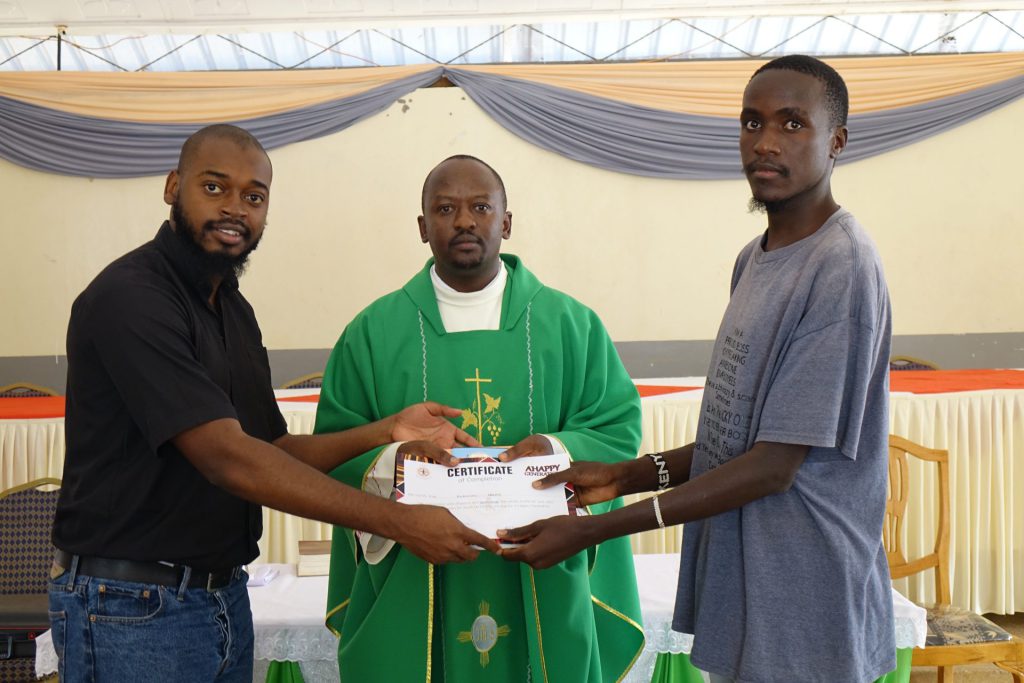
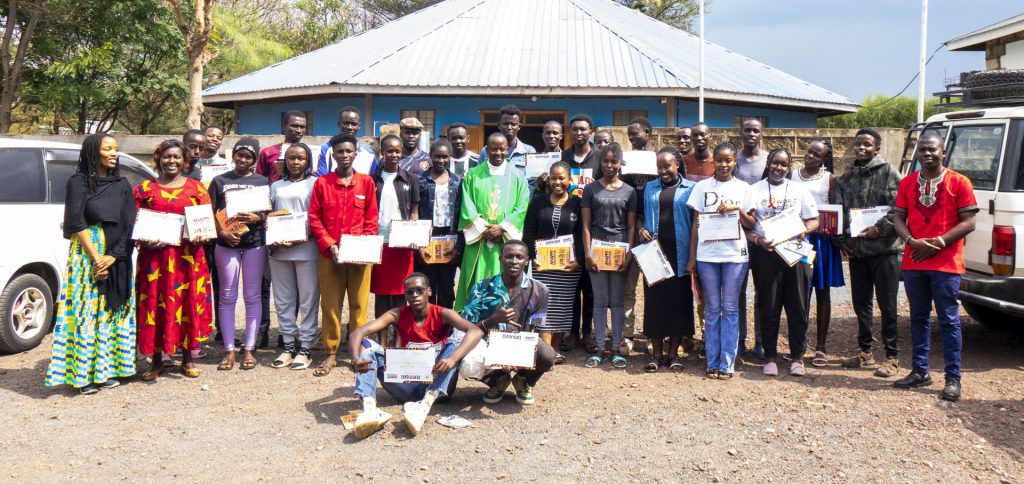
At the conclusion of the five-day AHAPPY training, Fr. Bosco Njiru, the youth chaplain of the Catholic Diocese of Isiolo, presided over a commissioning Mass of the 32 Youth leaders from the 10 parishes of Catholic Diocese of Isiolo. In his message to the youth, he urged them to wholeheartedly embrace the sacraments, especially the Sacrament of Confession. He emphasized the importance of approaching Confession with sincerity and a genuine desire for change, stating, “In that moment, not only are our sins forgiven, but we also draw nearer to the Lord.”
By, Dennis Owuoche,
AJAN Communications Officer.

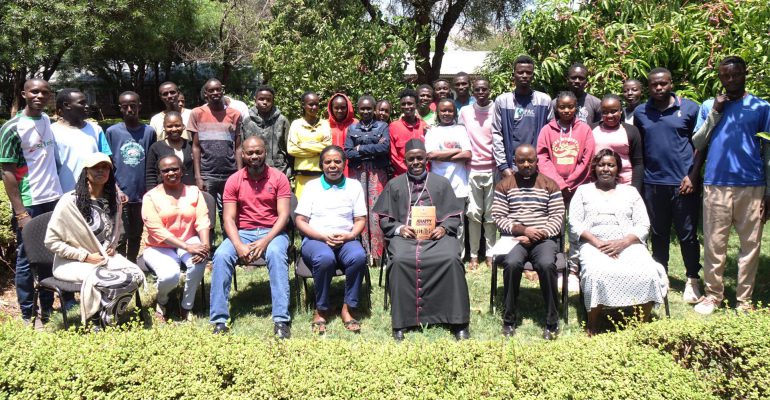
Comments are closed.